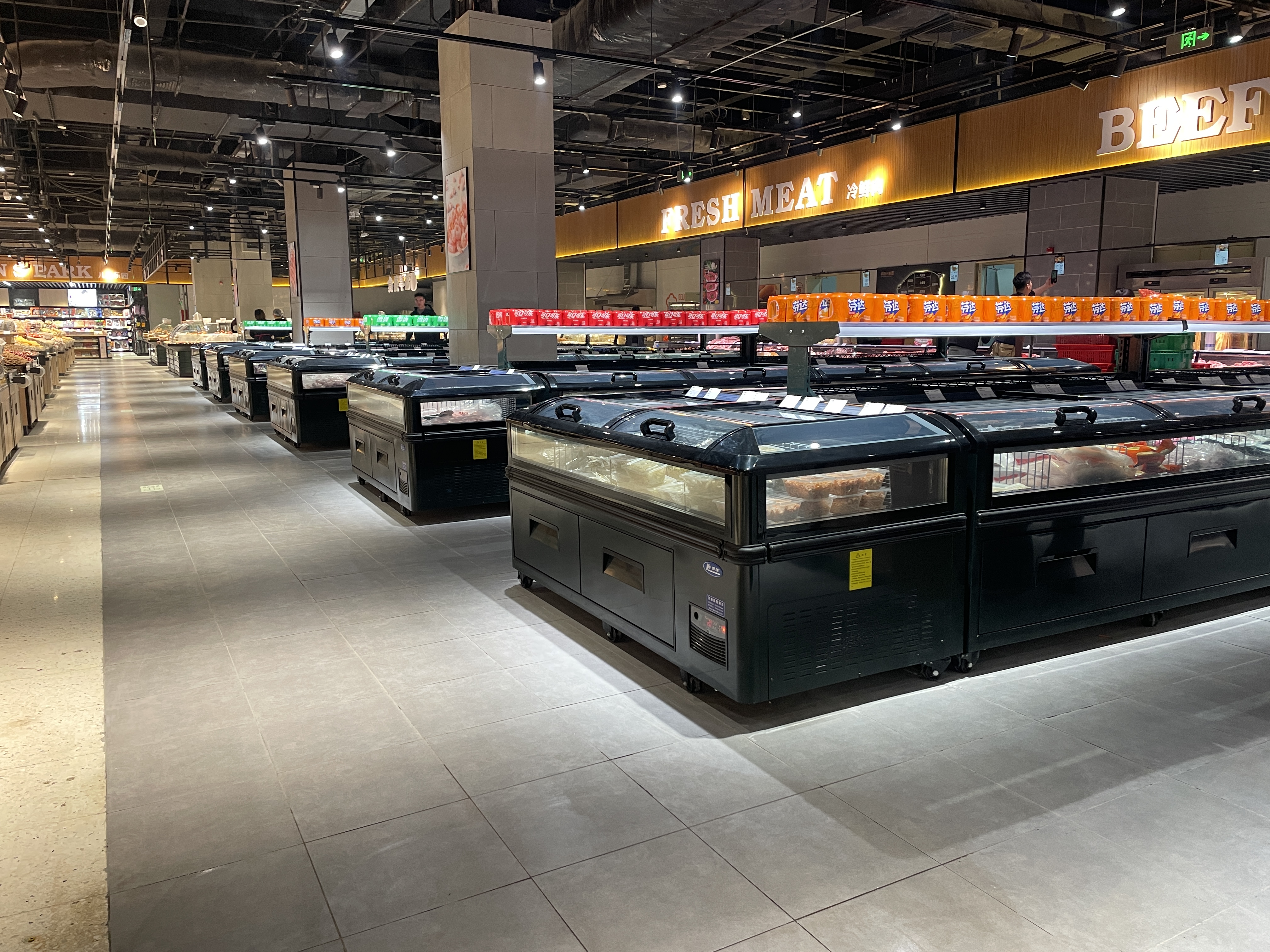In the competitive retail and food distribution industry, energy efficiency and sustainability have become core concerns for businesses. The island freezer—a key piece of commercial refrigeration equipment—is evolving from a simple display unit into a smart, eco-efficient system that helps companies cut costs and reduce environmental impact.
The Evolution of the Island Freezer
Traditional island freezers were designed primarily for storage and product visibility. Today’s models, however, integrate advanced technologies that improve energy management, temperature control, and user experience—making them an essential asset for modern retailers.
Key innovations include:
-
Intelligent temperature control systems that adjust cooling based on load and ambient conditions.
-
Energy-saving inverter compressors that optimize performance while minimizing power usage.
-
High-efficiency LED lighting to enhance product display without excess heat.
-
Eco-friendly refrigerants (R290, CO₂) aligned with global environmental standards.
Why Energy Efficiency Matters for B2B Operations
For supermarkets, convenience stores, and food distributors, refrigeration accounts for a large portion of total energy consumption. Choosing a high-efficiency island freezer can directly improve business profitability and sustainability performance.
Benefits include:
-
Lower operational costs: Reduced electricity bills and maintenance expenses.
-
Regulatory compliance: Meets energy and environmental standards in key markets.
-
Improved brand image: Demonstrates commitment to green operations and corporate responsibility.
-
Longer equipment lifespan: Less strain on components through optimized cooling cycles.
Smart Features that Redefine Performance
Modern island freezers are no longer passive units—they communicate, monitor, and adapt.
Notable features for B2B buyers to consider:
-
IoT connectivity for remote temperature and energy monitoring.
-
Self-diagnosis systems that detect issues before they cause downtime.
-
Adjustable defrost cycles that maintain optimal performance.
-
Modular layout design for scalable retail environments.
Applications in Modern Retail
Energy-efficient island freezers are being adopted in diverse commercial settings, including:
-
Hypermarkets: Large-capacity models for frozen food sections.
-
Convenience chains: Compact designs for limited spaces.
-
Cold storage logistics: Integration with automated warehouse systems.
-
Catering and hospitality: For bulk storage with quick access.
Conclusion
As energy costs rise and sustainability becomes a business priority, the island freezer is transforming into a high-tech, eco-friendly refrigeration solution. For B2B buyers, investing in smart and energy-efficient island freezers is no longer optional—it’s a strategic decision that drives efficiency, compliance, and long-term profitability.
FAQ: Smart Island Freezers for Business
1. What makes a smart island freezer different from a traditional model?
Smart freezers use sensors, IoT technology, and automated controls to maintain consistent temperature and reduce energy use.
2. Are energy-efficient island freezers more expensive?
While the initial cost is higher, the long-term energy savings and reduced maintenance make them more economical overall.
3. Can smart island freezers connect to centralized monitoring systems?
Yes, most modern models can integrate with IoT-based management platforms for real-time control and analytics.
4. What refrigerants are used in eco-friendly island freezers?
Common options include R290 (propane) and CO₂, which have lower environmental impact and comply with international regulations
Post time: Oct-29-2025





